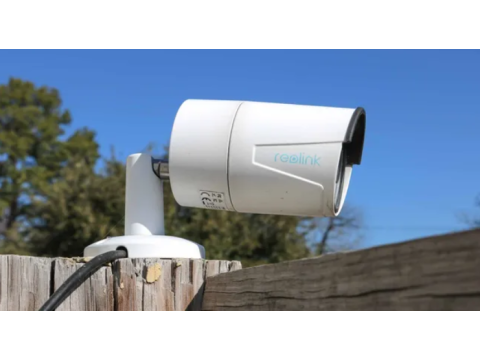Wired Security Cameras: A Reliable Choice
Wired security cameras remain a cornerstone of video surveillance systems, valued for their dependability and cost-effectiveness. Despite requiring more extensive installation efforts, their benefits often outweigh the drawbacks, especially in environments requiring stable and uninterrupted monitoring.
Advantages of Wired Security Cameras
Stable Connection:
Wired systems are resistant to electromagnetic interference and provide consistent video quality, making them ideal for environments with high wireless traffic.Long-Distance Capability:
- Analog cameras: Signal transmission over 1 kilometer using coaxial cables or twisted pairs.
- IP cameras: Require network switches every 100 meters, but outperform wireless options in range and stability.
Cost-Effectiveness:
- Lower initial equipment costs compared to wireless systems with similar capabilities.
- Reduced maintenance expenses over time.
Security and Privacy:
Wired connections are inherently more secure, reducing the risk of unauthorized access or data interception.Simplicity:
Analog wired cameras are straightforward to install and maintain, often requiring minimal configuration.
Popular Types of Wired Cameras
Mini Cameras:
Ideal for covert installations, these compact cameras can be integrated into walls, ceilings, or everyday objects.Types:
- Cylindrical: Easy to embed in walls or ceilings.
- Rectangular (Cube): Compact and versatile.
- Modular (Bodiless): Perfect for custom setups.
Applications:
- Discreet home or office surveillance.
- Professional installations requiring concealed monitoring.
IP Cameras:
Wired IP cameras outperform wireless alternatives in data transmission, offering:- High reliability in signal strength.
- Support for PoE (Power over Ethernet): Simplifies installation by combining power and data in one cable.
Installation and Maintenance of Wired Systems
Infrastructure Setup:
- Wired cameras require cable runs, which can increase initial costs but ensure long-term reliability.
- Use shielded cables to minimize external interference and ensure signal integrity.
Power Supply Considerations:
- IP cameras with PoE simplify wiring needs, reducing installation time and costs.
- Ensure adequate power supply for analog or IP cameras to handle long cable runs.
Data Security:
- Physical cables reduce the risk of data breaches compared to wireless transmissions.
- Use encryption for IP-based systems to further enhance security.
Why Choose Wired Cameras Over Wireless?
While wireless cameras offer convenience, wired systems excel in reliability, stability, and cost-efficiency. For applications requiring:
- Long-term installations with minimal maintenance.
- High-security environments where data protection is paramount.
- High-traffic areas prone to wireless interference.
Wired cameras provide the perfect solution.
Conclusion
Wired security cameras continue to be a trusted option for home, office, and industrial surveillance. With their robust performance and minimal interference, they remain the go-to choice for dependable and secure monitoring. Proper installation and maintenance will ensure these systems deliver superior results for years to come.

